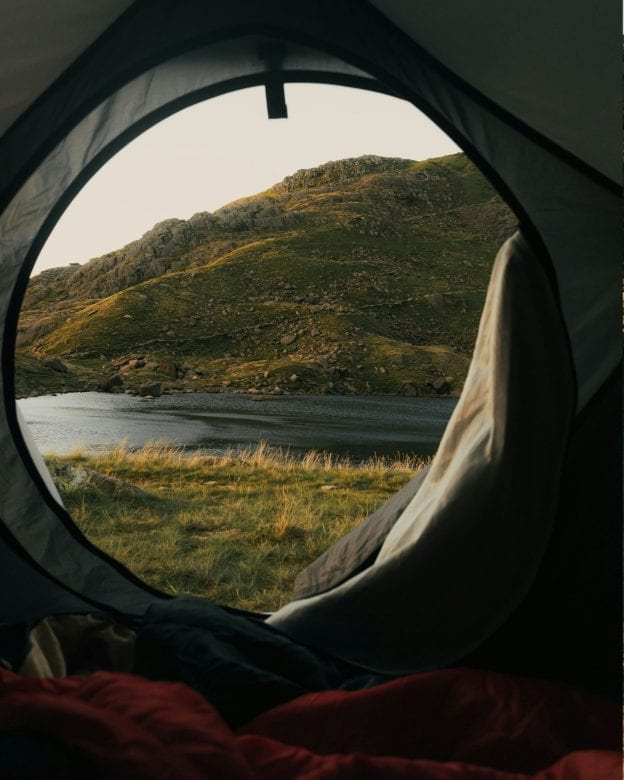The CA judgment in Darwall is out. I will confess that I thought it would go the other way – not because natural pessimism led me to expect things to turn out in the way opposite to my preference, but just because, given that changes to the extent of access to the countryside have become part of the likely programmes of political parties, it seemed as if it might be a plausible choice for the CA to say ‘this is one for Parliament to sort out, not us’. Got that one wrong.
Anyway, no doubt I will revisit this, and may update/beef up as I wade through the CA livestream, but it seems worth noting a few immediate thoughts. So –
What is it about?
Alexander and Diana Darwall sought a declaration that people had no right to ‘wild camp’ on Dartmoor, where they owned (a lot of) land. ‘Wild camping’, is, helpfully, defined for us by Underhill LJ as:
a modish phrase which I understand to mean camping overnight in a place which is not a dedicated campsite
There had been an idea that there was such a right in the National Park there, even though there was not generally such a right in England. In the High Court, (: [2023] EWHC 35 (Ch)) Darwall won, and the relevant National Park authority appealed.
Why is it interesting?
Well, it is a fight on the borderline of the extent of a landowner’s power to exclude and the right of the public to obtain access to England’s wild places.
Essentially, it was uncontroversial that the public had access to the National Park for purposes of (for example) walking – so there were definitely some limits to the Darwalls’ rights as landowners, but was wild camping (i.e. camping other than at a designated site, with permission) allowed as well, or not? In the High Court, a judge (Flaux J) had said no. The CA (Vos MR, Underhill and Newey LJJ) however, were convinced that that was incorrect:
‘57. I, therefore, conclude that the grant to the public of “a right of access to the [Dartmoor Commons] on foot and on horseback for the purpose of open-air recreation” does allow members of the public to rest and sleep, whether by day or by night, whether on the ground or in a tent. I do not think that the use of the word “open-air” means that a tent cannot be used for the necessary incidents of walking …’ [Vos]
Despite being about pretty big principles, the CA case was argued on the less-swashbuckling territory of construction of certain legislation specific to Dartmoor itself, and particularly the following words: “the public shall have a right of access to the commons on foot and on horseback for the purpose of open-air recreation” – Dartmoor Commons Act 1985 s. 10(1).
What not-entirely-legally-relevant hares has it set off running in my head?
I thank myself for asking. Well I do I find it rather interesting that there is considerable variation, in the judgments and in newspaper coverage, in the way in which the Darwalls are described. They are ‘farmers, landowners and commoners’ in one place [H Ct 4; CA, 33], which gives a certain spin to things to most people, I would imagine. Farmers – well, they are often treated as a bit special in Land Law, aren’t they (see various proprietary estoppel cases which seem to view farmers and their ways as not like other people, even if they are running rather large concerns in a business-oriented way)? And ‘commoners’ sounds very rustic and old world. Not quite how things are here – as various journalistic sources tell us, Alexander Darwall is not a life-long tiller of the soil, herder of beasts etc., but somebody who was primarily a hedge fund manager, acquiring land in the National Park relatively recently, and using it for, amongst other things, pheasant shooting and deer stalking (see, e.g. the Guardian , which also notes certain political activities).
I also rather enjoyed some of the gymnastics involved in trying to argue that camping was, or was not ‘open air recreation’ (either because canvas meant it was not ‘open air’ or because recreation had to be something physically active and could not be stationary) (see e.g. CA at 55).
Almost finally, one thing which often strikes me as worthy of further study, though I have not made a thorough-enough study of it to say much about it, is the judicial performance of emotion. Expressions of ‘real sympathy’ for the landowners at 72 (CA, Underhill LJ) – what do we think? In a judgment which otherwise seems to be at pains to keep to the statutory construction task, that choice did stand out to me as interesting.
Actually finally, and despite his being on ‘the wrong side’, I do have to award a special gold star for creativity to Timothy Morshead KC, who is reported to have made an allusion to a famous poem by Keats, relating to those ‘long in city pent’, which, although it does mention not being in motion at all times, seems to describe access to the countryside on a day basis, rather than camping, neatly supporting his clients’ case (H Ct, 40).
A good one for a Land Law reading list?
Yes – clearly an important area, and something which is ripe for a bit of debate about the limits of rights in and to land. Also shows that fights about pretty fundamental principles can be tied up in painstakingly detailed analysis of the wording of statutes, so rams home the Land Law lecturer’s favourite instruction: you need to be precise! Also –it weighs in at a mere 20 pages: see, proprietary estoppel case judges – you don’t actually have to get into 3 figures…
GS
5/8/2023
Photo by serena saponaro on Unsplash

